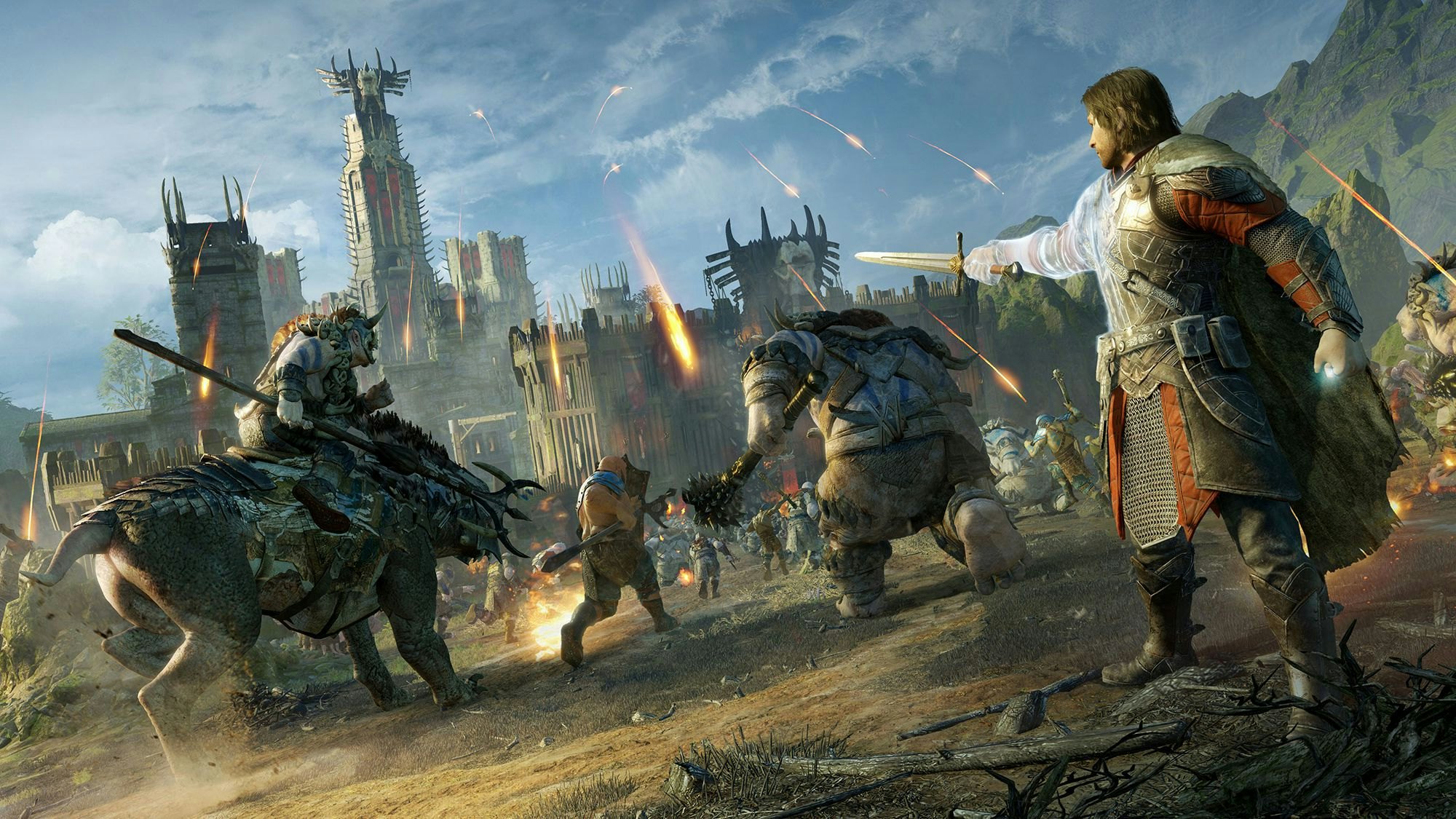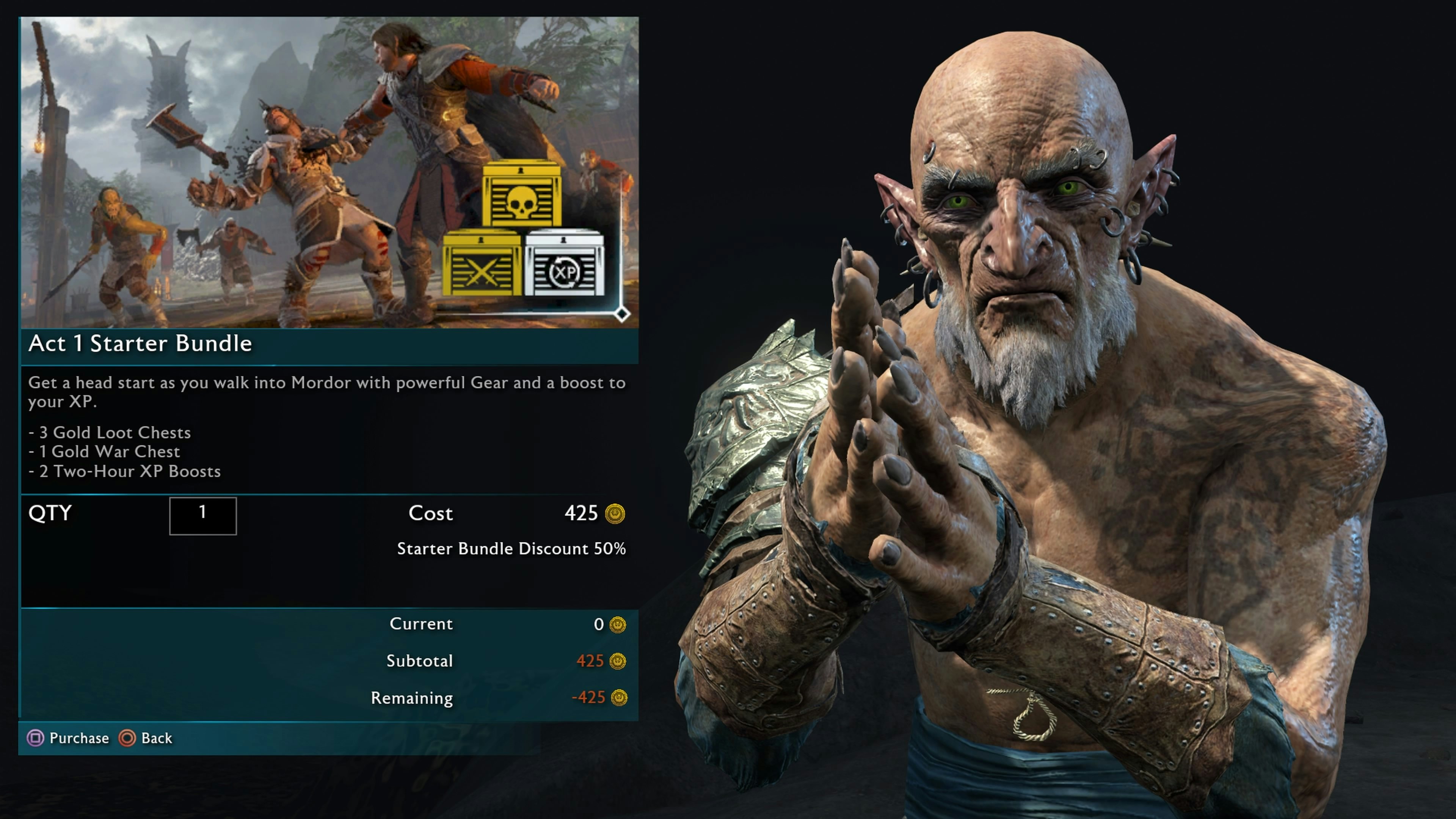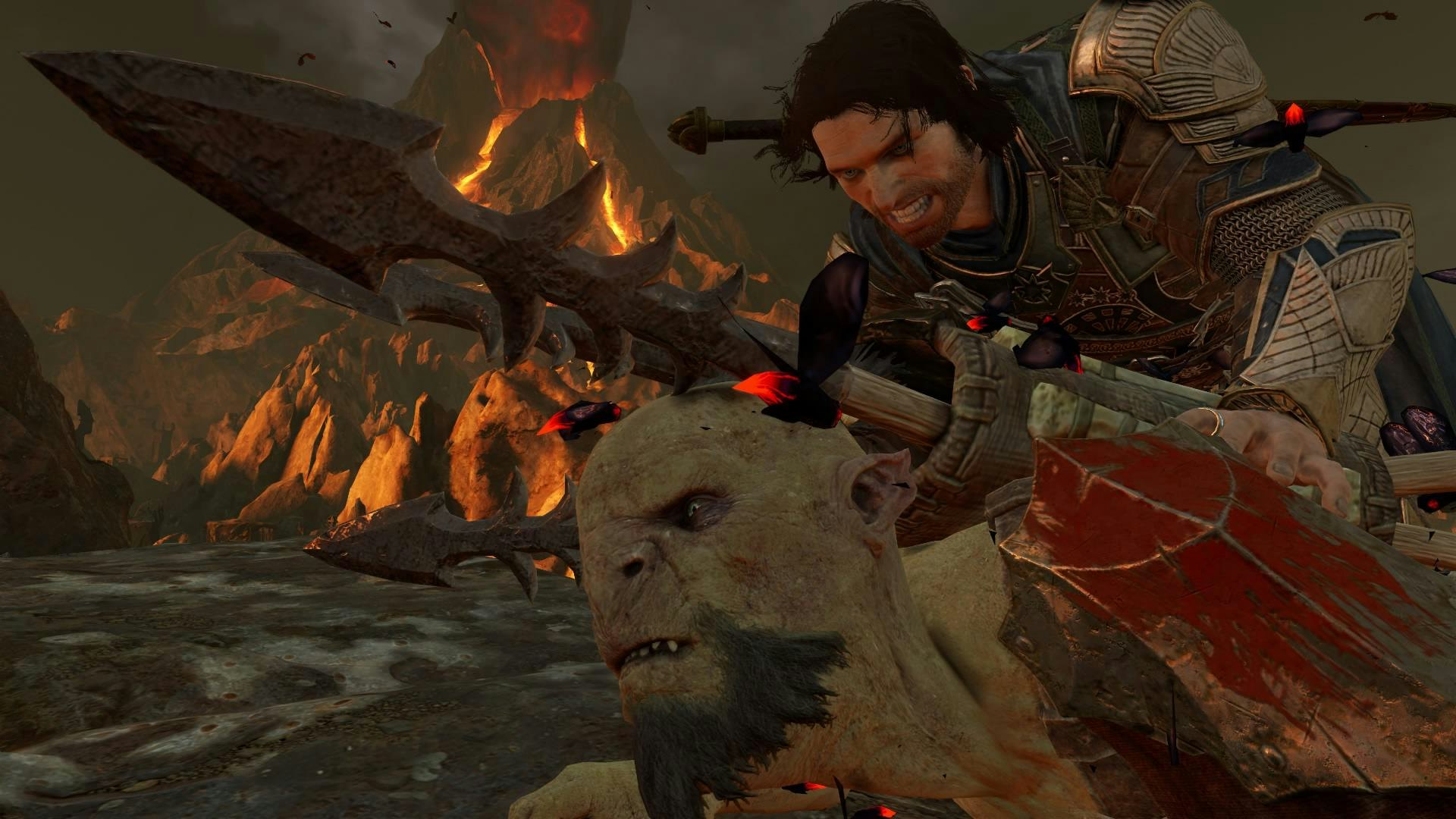
You can’t manufacture a rivalry. Some of the biggest rivalries, be it video game companies or supervillains, seem to have always existed. There’s an organic nature to rivalries even in our own lives. We don’t pick our rivals. We find them. They happen to us. An obnoxious coworker, a nasty cashier, a printer that hates you. The paradox of rivalry is that even though they represent a conflict, we love them. A good rivalry is thrilling. And one video game understands that better than anything else.
Middle-earth: Shadow of War is the sequel to 2014’s breakout hit Middle-earth: Shadow of Mordor which sends players to the high fantasy world of J.R.R. Tolkien to kill a ton of orcs. But some of the orcs have memories and personalities, and an innovative gameplay system combines it all to create satisfying rivalries of betrayal and revenge.
A Lord of the Rings prequel story featuring Talion, a Ranger who cannot die because he shares a bond with the ethereal Celebrimbor, the creator of the infamous Ring of Power. More importantly, both games feature the equally infamous Nemesis System, the unique software that powers how these rivalries develop. Unlike most games, where the enemy that kills you is forgotten once you smash “continue,” this series elevates grunts into high-powered captains who will taunt/haunt you until you kill or enslave them. It’s incredibly fun, and Shadow of Mordor was super popular. The sequel should’ve been a slam dunk but fell victim to one of mankind’s oldest rivals: greed.
Lootboxes are practically a slur in gaming at this point, but really reached a zenith when Shadow of War was released in 2017. WB Games misjudged how unpopular a complex conglomeration of various loot chests and online prizes would be for its fans. It got slapped, perhaps unfairly, with a pay-to-play label and many fans who loved the first game opted to skip the second. By the time WB Games removed the lootboxes months later, the damage was done.
People moved on, but now is the perfect time to come back.

Shadow of War does everything its predecessor does right and adds a few more bells and whistles to an already action-packed experience. Historically, it is very much a game of its era, that era being the Ubisoftification of action games. There are waypoints and challenges aplenty in the vast expanses of Shadow of War, all of them worth visiting because this open world is a blast to play.
Traversal feels like Assassin’s Creed on steroids as Talion is granted some supernatural buffs that make climbing and sprinting effortless affairs. Combat is just shy of button mashy, with flurried attacks and parries eventually leading to lethal combos and executions. Once you lock into the rhythm of the swordplay you truly feel like a fantasy hero as you cut through orcs by the dozen.

You don’t just kill orcs either, you recruit them for your army via mind-control magic. There is a new fortress/siege component in Shadow of War that expands upon the recruitment to offer up countless hours of intricate management. Because the orc captains all have unique traits, personalities, and voice-acting, it’s easy to find favorites. My most recent playthrough introduced me to Uggath One-Word, a mealy-mouthed orc who mutters and sputters until he gets out one word: “uncomplicated.” Silly details like this help keep things light, a good thing for gamers worried that the premise of military slavery is a touch unethical.
Middle-earth: Shadow of War is a helluva game worth a second chance. It offers dozens of hours of white-knuckle grinding and tons of lore alongside organic narratives powered by the Nemesis System. Few games let you feel as heroic. But the true measure of a hero is in their rivals. Find your new worst friend and play it ASAP.
Middle-earth: Shadow of War is available on Game Pass and PlayStation Plus. It’s also for sale on Xbox, PlayStation and PC.







